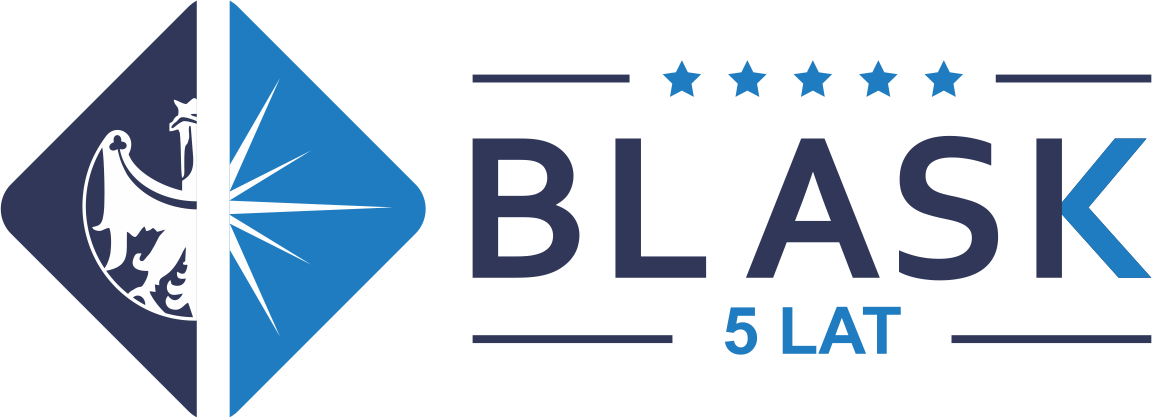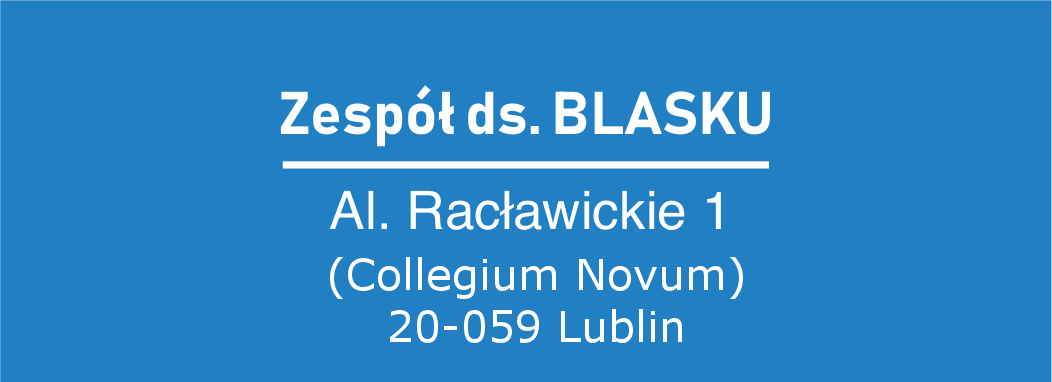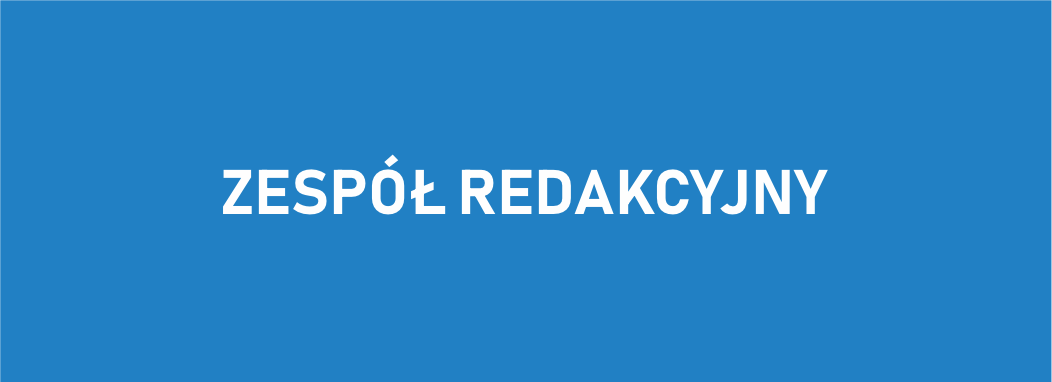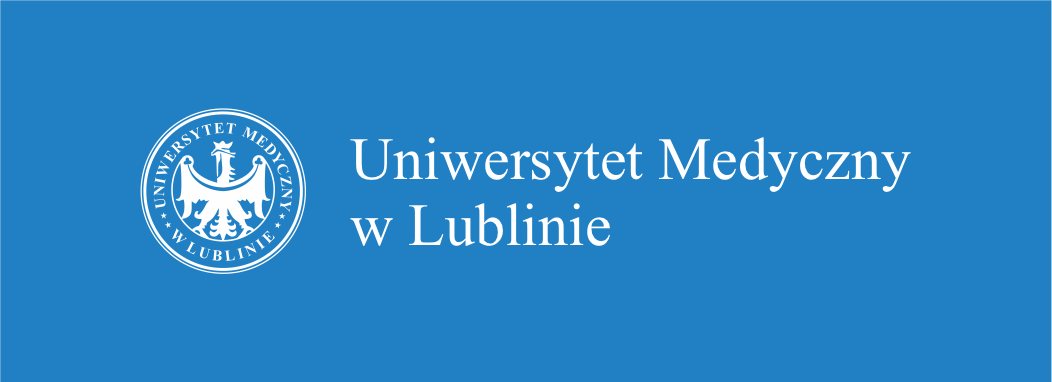Informator uniwersytecki
numer 032
listopad 2024
★
19
Pierwsi zagraniczni delegaci GreenCosmIn w UML
Od 1 marca 2024 roku Uniwersytet Medyczny w Lublinie angażuje się w międzynarodowy projekt „Green chemistry and biotechnology approaches for the development of nature-based cosmetics” (GreenCosmIn), finansowany przez Unię Europejską w ramach programu MSCA Staff Exchange (https://nawa.gov.pl/en/dzialania-marii-sklodowskiej-curie/marie-sklodowska-curie-staff-exchanges). O szczegółach projektu informowaliśmy w jednym z poprzednich wydań czasopisma „Blask” (numer 025 https://blask.umlub.pl/article2.php?issue_nr=025&art_id=1044).
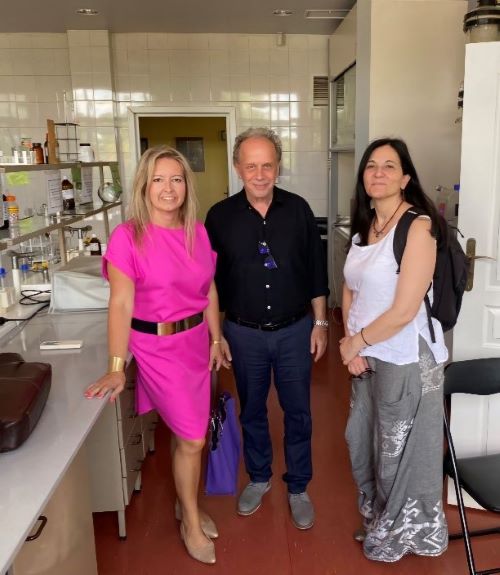
Kierownikiem całego międzynarodowego projektu jest Pani Profesor Maria Halabalaki z laboratorium Division of Pharmacognosy and Natural Products Chemistry na National and Kapodistrian University of Athens, uznawanego za wiodącą europejską jednostkę badającą zastosowania terapeutyczne i kosmetyczne materiału roślinnego. We współpracę z tą instytucją zaangażowana jest od lat również Pani Prof. Wirginia Kukuła-Koch.
Pani Profesor Halabalaki oraz Kierownik katedry Profesor Leandros Skaltsounis odwiedzili Zakład Farmakognozji z Ogrodem Roślin Leczniczych Uniwersytetu Medycznego w Lublinie w lipcu tego roku.
Pani Profesor Halabalaki oraz Kierownik katedry Profesor Leandros Skaltsounis odwiedzili Zakład Farmakognozji z Ogrodem Roślin Leczniczych Uniwersytetu Medycznego w Lublinie w lipcu tego roku.
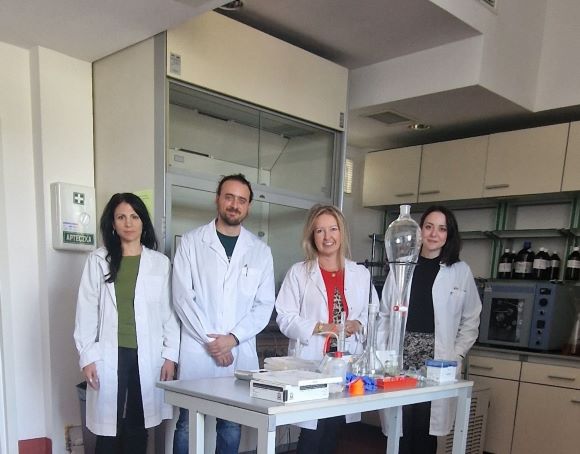
Kolejnym punktem programu była praca w Katedra i Zakład Mikrobiologii Farmaceutycznej, gdzie pod opieką dr Martyny Kaseli i prof. Anny Malm badano wpływ wyciągów i frakcji na mikrobiotę skóry. Dodatkowo w Zakładzie Żywności i Żywienia, pod kierownictwem prof. Wojciecha Kocha, uczestnicy analizowali kompozycję mineralną badanych substancji roślinnych.
Miesięczny pobyt gości był doskonałą okazją do pogłębienia współpracy z greckim ośrodkiem, umożliwił interdyscyplinarne badania we współpracy z partnerami konsorcjum oraz zdobycie wiedzy na temat zastosowania zielonych technologii w produkcji innowacyjnych kosmetyków.
Ten międzynarodowy projekt stanowił ważny krok w kierunku rozwoju nowoczesnych, ekologicznych rozwiązań w branży kosmetycznej.
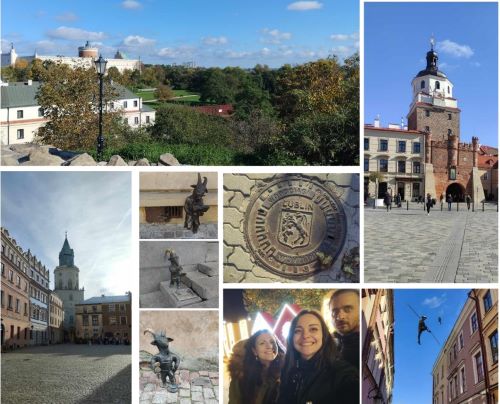
What are your feelings after your first few days at the Medical University of Lublin?
M: I am very excited about this project and all these new opportunities.
I: I feel very welcomed by everyone here in the university and I am really excited about being here.
V: I feel excited about being a part of a new staff in a new laboratory. Of course, like everything new, it needs a bit of an adjustment to the new circumstances but the environment here is very warm and friendly, so I have no doubt that everything will be fine, and we will have a great time here.
Have you ever been in Poland before? What are your first experiences of the culture, people, or daily life?
M: No, this is the first time I am visiting Poland. I was pleasantly surprised by the parks and the sights, as well as by how friendly and polite the people I have interacted with are.
I: No, it is the first time. I really like the hospitality of people. Everything here is very well organized and the city of Lublin is really beautiful, with lots of open spaces and parks.
V: I’ve been to Poland once, a few years ago, by participating in an exchange students’ program, contacted by EU. During my stay, I came across some nice people and I learned about their habits. All the positive feelings I received then came back and I am looking forward to experience the polish way of everyday life once again.
Has anything surprised you in the functioning of the university here in Lublin in comparison to your home university so far?
M: I really love how organized the laboratories in this university are, as well as by how well-maintained the entire campus is. The people are very kind, and they are more than willing to help. It reminds me of the environment and the colleagues at the lab in Greece, and I already feel very comfortable and happy working here.
I: The laboratories here are very well organized and the level of expertise is very high. It feels like being in our university, with the only difference being some other kind of projects we are working on.
V: As I work in a similar lab in Greece, I can notice many similarities here in comparison with the lab in Greece. However, what I would like to emphasize is the excellent organization and the very good facilities that the Medical University of Lublin offers.
Why have you decided to work with medicinal plants? Why do you think that this topic is worth further investigations?
M: As an agronomist, I have always had a passion for the biochemistry of plants. After completing my master's studies in the field of medicinal plants, I understood their importance and the need for research in this specific area. It is a topic that requires more investigation, as the demands of pharmacology and pharmacognosy are constantly increasing and require new data and results for a better future.
I: I was really interested in plant science from an early age, in general. I believe that medicinal plants are a real treasure of nature with miraculous and highly significant properties that can be further exploited in pharmaceuticals.
V: Since I hold a degree in Agricultural Biotechnology, it is natural for me to work with plants, especially medicinal ones, as my master's degree focused on them. This is highly important because every innovation stems from a foundation that is rooted in nature.
Do you find it difficult to be a researcher?
M: It is certainly challenging sometimes, but in comparison with the excitement of discovering something and always learning new things, the difficulties are easy to overcome.
I: Every field has its difficulties, as this one does. However, in my opinion, there is something really attractive in research that makes the difficulties seem minor.
V: I believe that every profession has its challenges, and this one is no exception. However, if you enjoy what you do, you manage to overcome any difficult situation that may arise.
How were you recruited to take part in the GreenCosmIn project?
M: Our professors know that I’m always looking for something new to learn and they thought that I would love to see how laboratories in another country work. Αfter attending the kick-off meeting and getting to know the participating universities, I realized the value of the program and how great of an opportunity it is for me, both professionally and personally.
I: I learned about this project from my supervising professor, and after discussing it, I found it to be a really interesting proposal and a very important initiative that will contribute greatly to gaining new knowledge and experiences.
V: I was informed about the program by the coordinator of our lab in Athens, and it seemed very interesting to me. After attending the program’s kick-off meeting and getting to know the universities participating in the program, I decided to take part and give myself the opportunity to live and work abroad for this period of time.
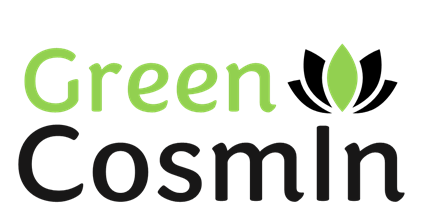
Zachęcamy do śledzenia działań w ramach projektu na stronie internetowej: https://umlub.pl/nauka/badania-i-rozwoj/miedzynarodowe-programy-badawcze/msca-se-staff-exchange-green-chemistry/.
© 2022 Centrum Symulacji Medycznej UM w Lublinie
